
Domestic
16:37, 19-Apr-2019
Reporter’s Diary: Internet does not spell demise of cinema, a lack of good stories does
Updated
09:06, 20-Apr-2019
Liu Chen
02:16
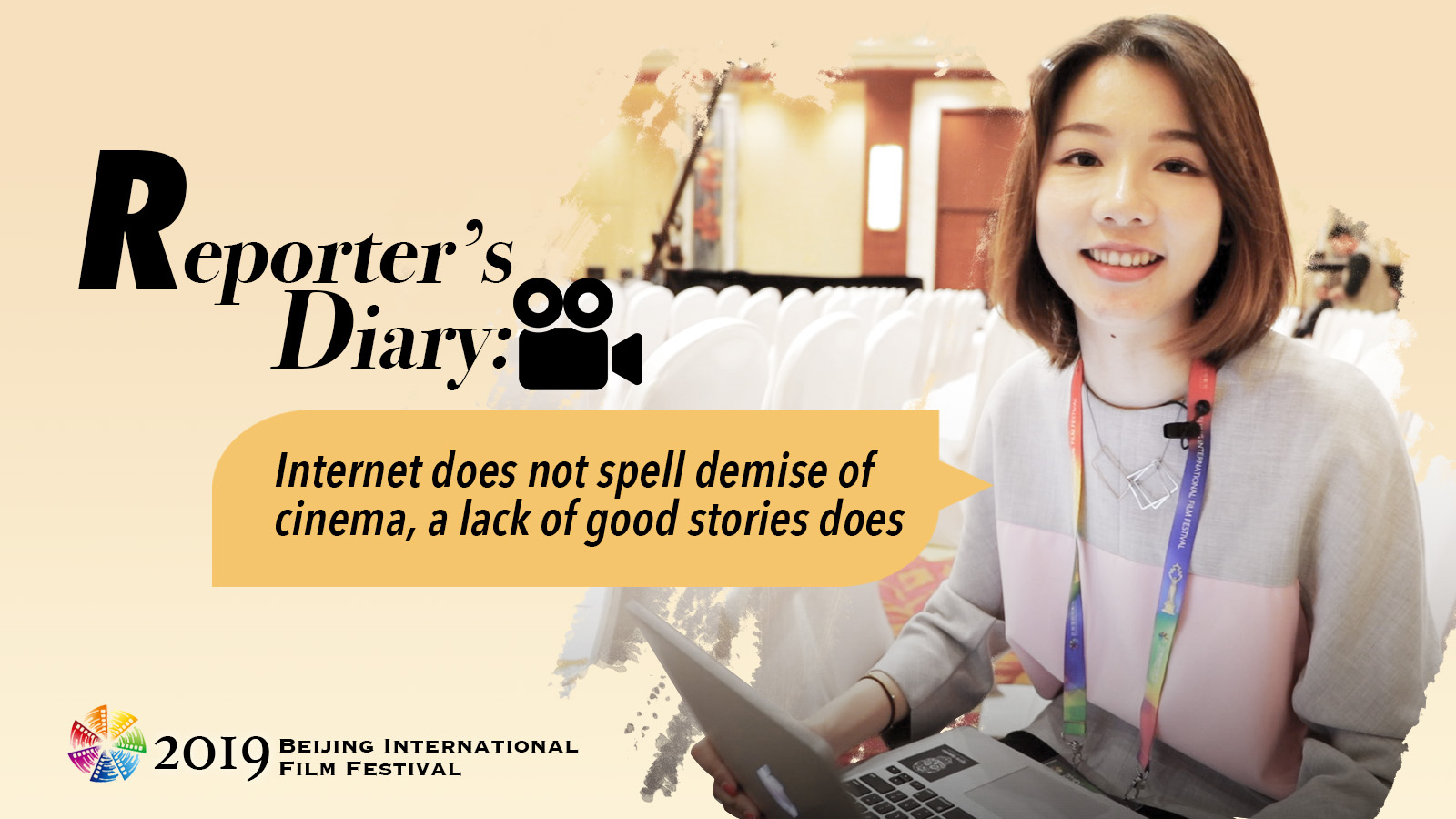
I am a big Netflix fan. In their latest production “Love, Death and Robot,” an incredible fictional world beyond everyone's imagination is created.
So is it possible to have a Chinese Netflix in the future, producing great visual works independently, and only screen them online? This question comes to my mind from time and time, and unexpectedly, I got my answer at the Internet Film Theme Forum on Wednesday.
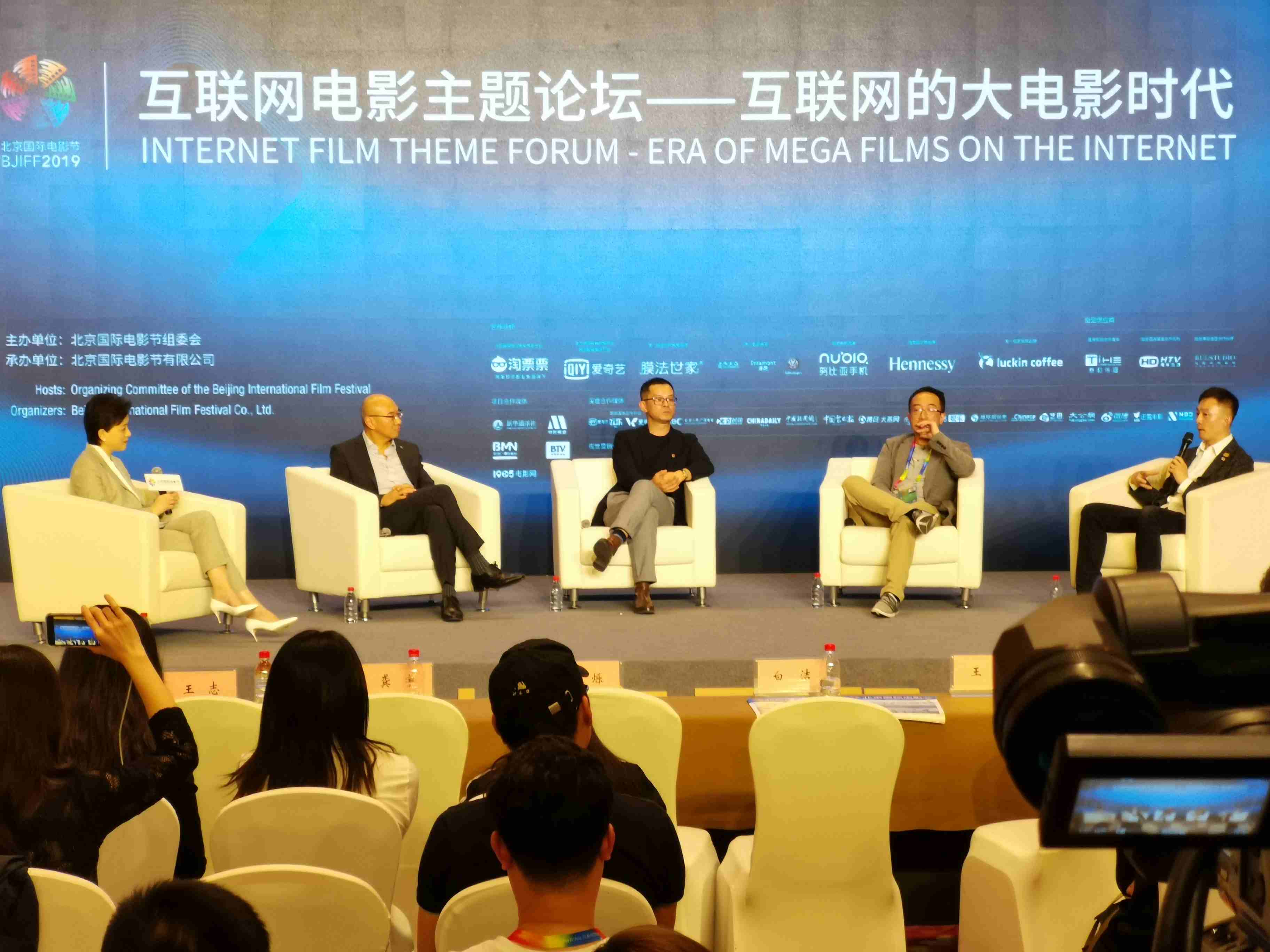
The guest speakers at the Internet Film Theme Forum at the sidelines of the ongoing 9th Beijing International Film Festival in the Chinese capital. /CGTN Photo
The guest speakers at the Internet Film Theme Forum at the sidelines of the ongoing 9th Beijing International Film Festival in the Chinese capital. /CGTN Photo
I was attending the forum as part of my coverage of the 9th Beijing International Film Festival. High-level managers from China's leading filmmaking and production companies such as iQIYI, Alibaba and Huayi Brothers were in attendance, discussing the future of Chinese movies in the digital era.
Dr. Gong Yu, CEO of iQIYI, and James Wang, CEO of Huayi Brothers Media Corporation, both agreed that it is impossible to have a Chinese version of Netflix, at least not anytime soon.
They indicated the business model of Netflix would hurt others from profiting in China, but didn't elaborate on the point. Movies produced by Internet companies in China tend to have low budgets and are poor quality. If a film is only screened online, its producers can't make enough profit.
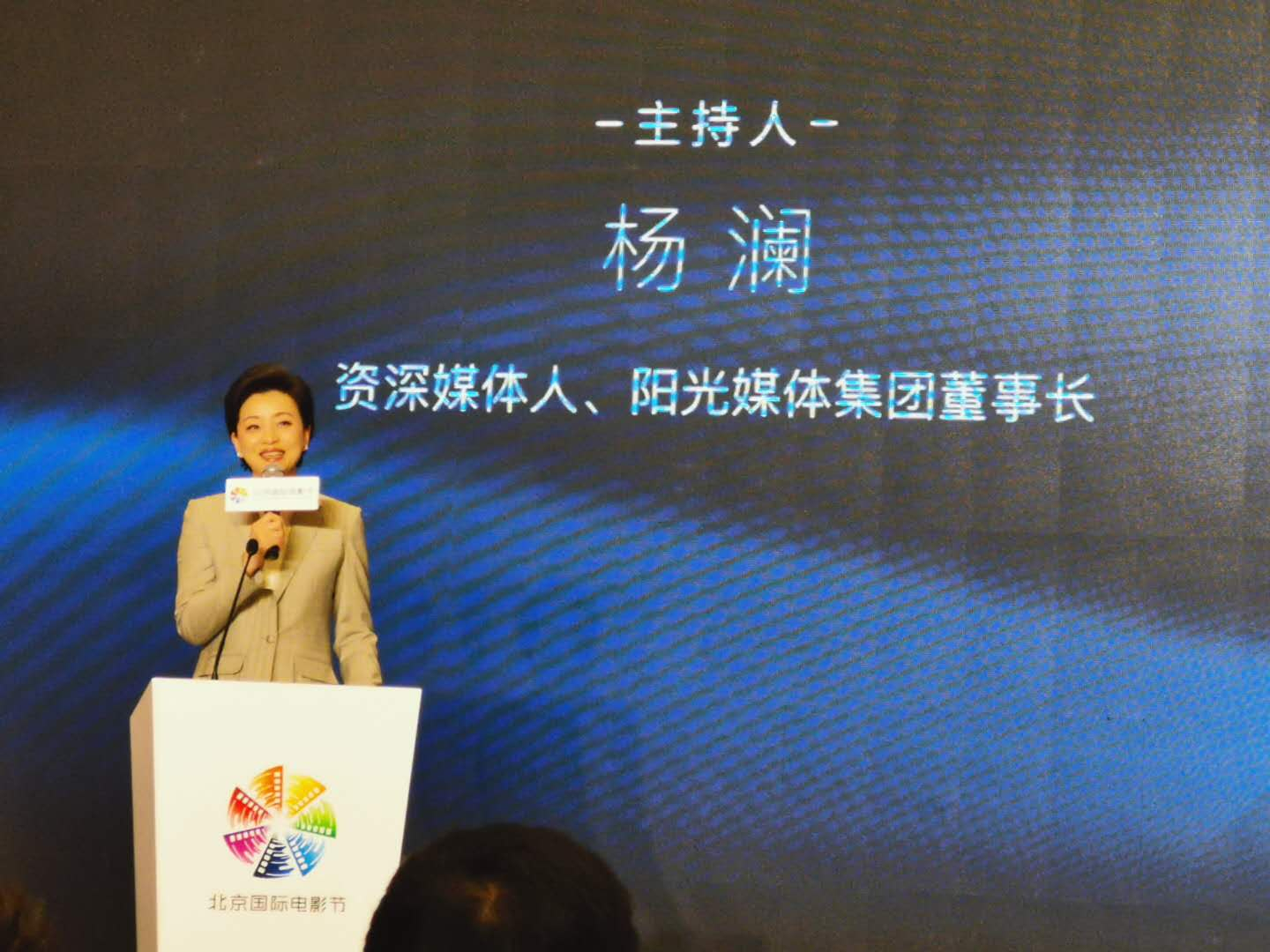
Yang Lan, a well-known Chinese presenter, hosts the Internet Film Theme Forum on the sidelines of the 9th Beijing International Film Festival in the Chinese capital. /CGTN Photo
Yang Lan, a well-known Chinese presenter, hosts the Internet Film Theme Forum on the sidelines of the 9th Beijing International Film Festival in the Chinese capital. /CGTN Photo
Covering film festival forums might sound like a tedious task, spending hours in conference rooms, sitting still and listening to lingdaos, Chinese for government officials. But on this day, I felt lucky to have managed to reserve one of just 50 available media seats and listen to insiders weighing in on important film issues.
Their analysis was delivered in layman's terms, and the discussion was frank and straightforward.
“The topic of the Internet and filmmaking has been discussed on so many occasions in the past few years,” Gong stated, in what seemed at first like a controversial thing to say given that the forum he was attending was exactly that. But then he added: “But this year is just the right time to talk about the issue again, as traditional filmmaking companies are on the decline.”
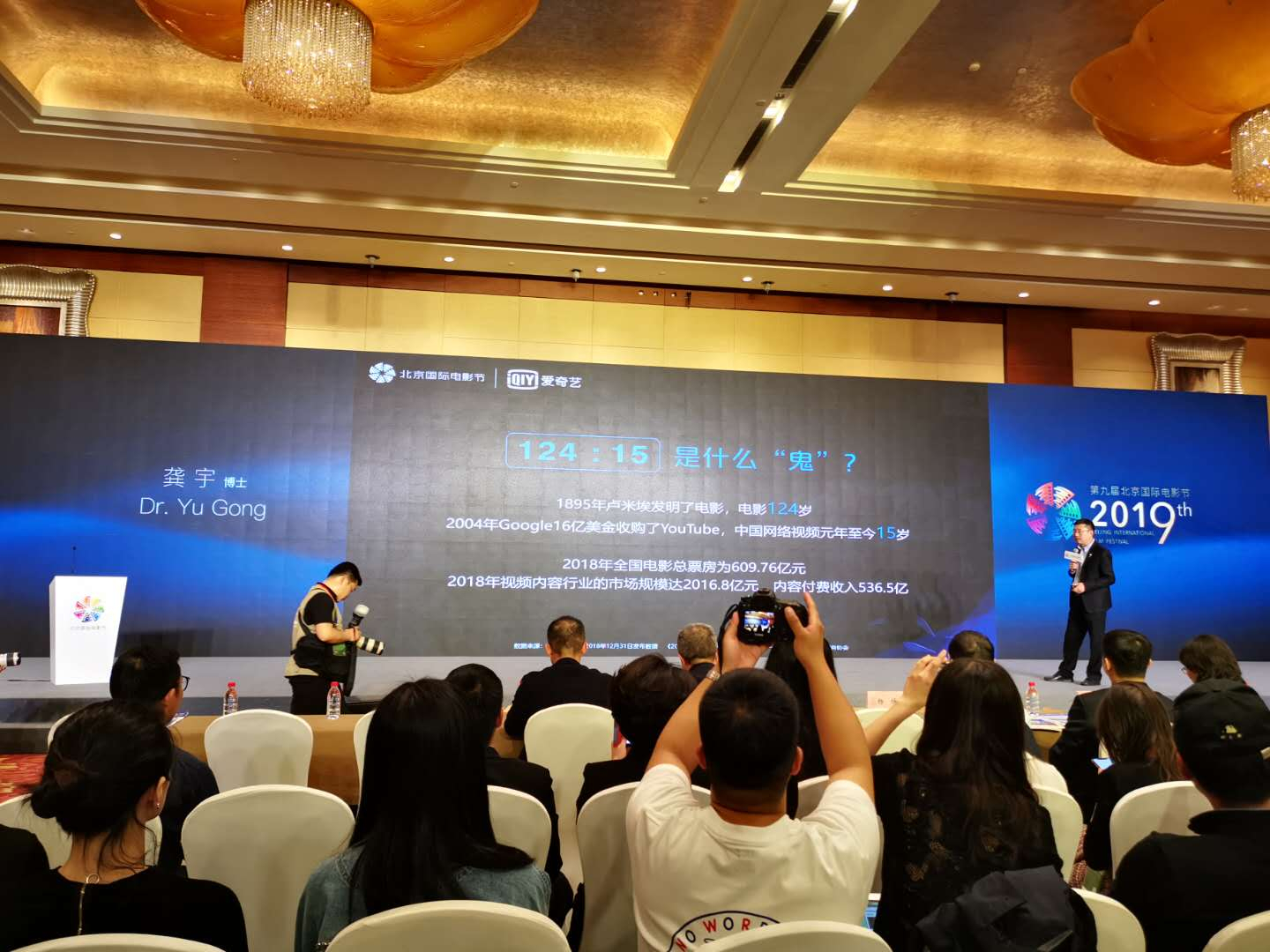
Dr. Gong Yu gives a presentation. /CGTN Photo
Dr. Gong Yu gives a presentation. /CGTN Photo
He said finding a new profit model that combines cinema with the Internet was an urgent task, as it's opposite to what is happening now: Pulling film resources from cinemas to online platforms.
From the perspective of filmmaking enterprises, James Wang noted that Internet companies have become involved in the filmmaking process by means of capital mergers.
“However, Internet database can never make decisions for screenwriters — about what to write and what to produce,” Wang said, stressing that filmmaking is an independent art form and that Internet companies should respect that.
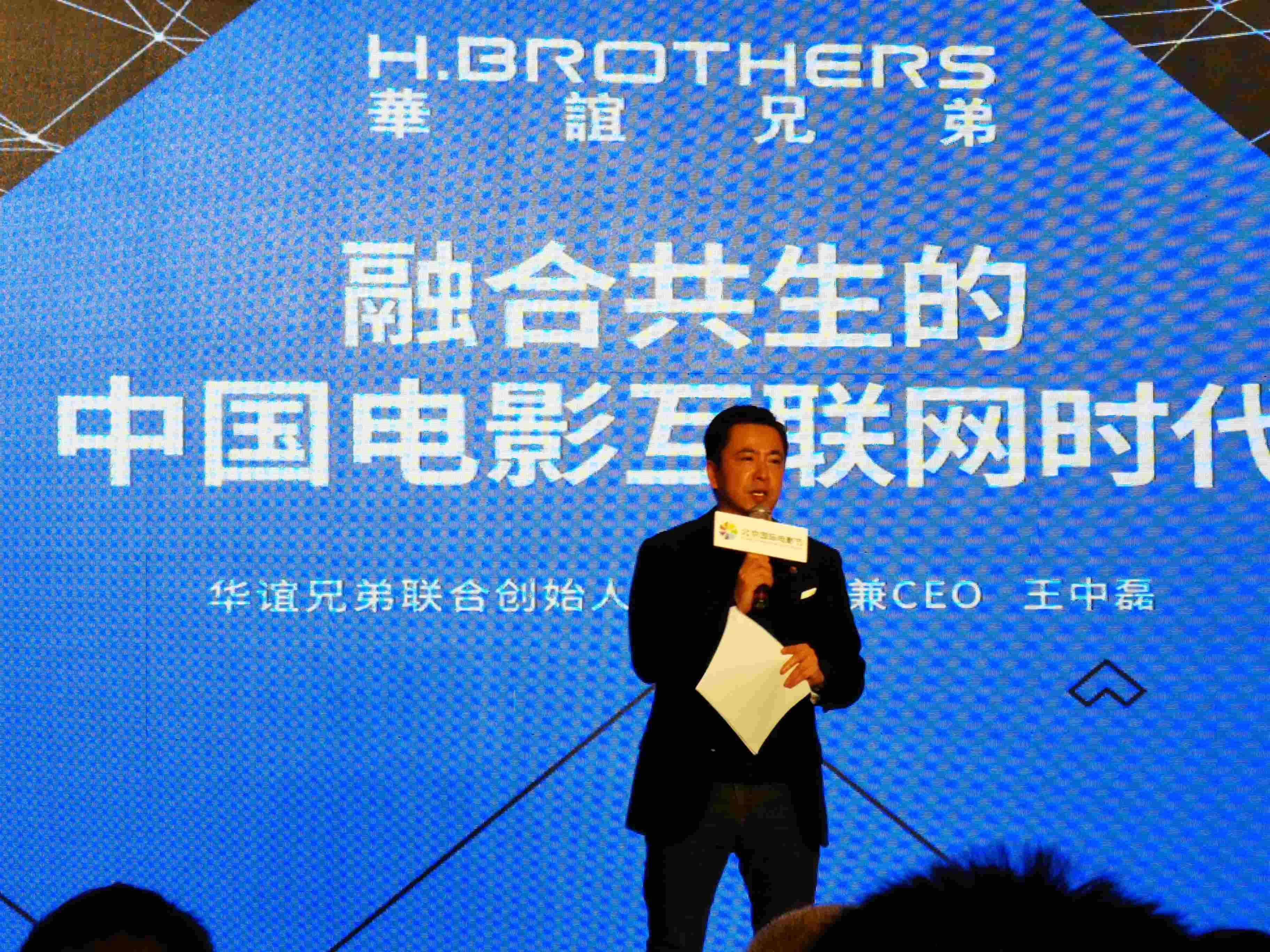
James Wang delivered a keynote speech at the forum. /CGTN Photo
James Wang delivered a keynote speech at the forum. /CGTN Photo
As for why audiences are less willing to travel to theaters and watch movies there, all speakers shared the same thought: The rise of Internet movies is not to blame. It is the lack of good stories and a rise in unpleasant cinema services.
When the forum ended, I was back on the road, crossing the city from west to east to a movie theater. I had bought tickets for “Mad Max: Fury Road” at an IMAX 3D theater, as they have good audiovisual equipment. As part of the Panorama Section of this year's Beijing International Film Festival, it was the first time that this visual masterpiece was screened on the Chinese mainland.

Every audience member was given a Mad Max: Fury Road poster as a souvenir at the cinema. /Liu Chen
Every audience member was given a Mad Max: Fury Road poster as a souvenir at the cinema. /Liu Chen
The visual effects and storytelling were thrilling. And truth be told, I would pay twice the ticket price to watch it in the theater again, even though I have already watched the film twice on my laptop.
Watching movies in the theater is an irreplaceable experience. Audiences are willing to pay as long as they can enjoy good stories and have a great time doing so.
Video: Xu Haoming, Zhu Danni
Photographer: Xu Haoming
Video editors: Xu Haoming, Zhu Danni
Copy editors: Nadim Diab, Josh McNally

SITEMAP
Copyright © 2018 CGTN. Beijing ICP prepared NO.16065310-3
Copyright © 2018 CGTN. Beijing ICP prepared NO.16065310-3